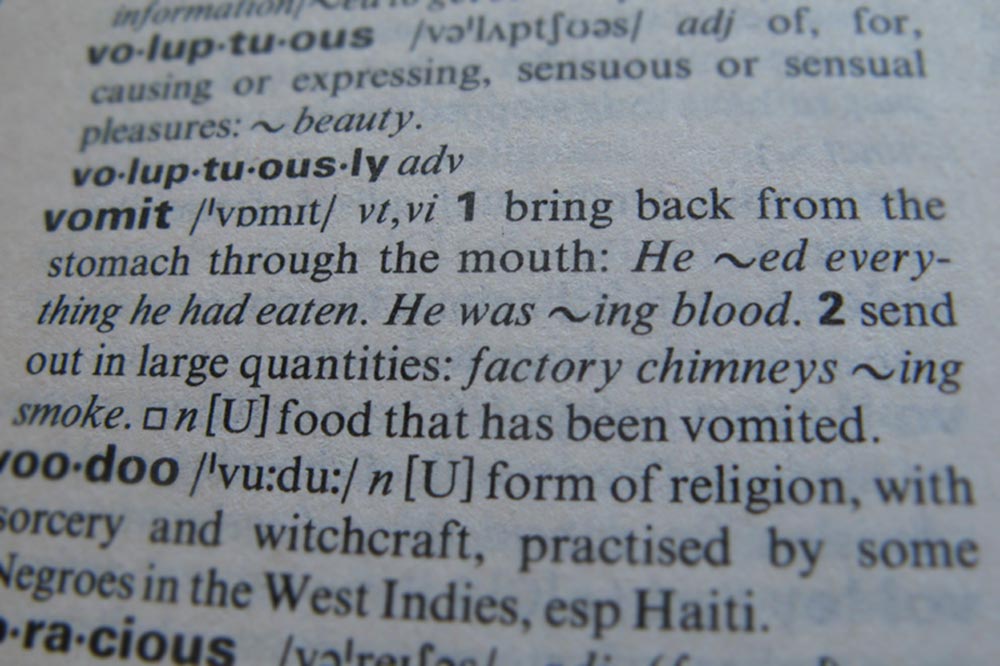That sickening Christmas dinner feeling
Eating. Most of us are lucky enough to do it every day, and often to excess. Basically, food goes in, gets mushed around and mixed up with a heap of chemicals made by different parts of our body, some nutrients are absorbed, and the rest comes out as waste. But what is it that makes us feel sick when we eat too much Christmas dinner?
Generally, our bodies are geared to match the amount of food we eat with the energy we expend going about our daily business—a balance known as energy homeostasis. Our brain and digestive system work together to make this happen.
Firstly, as we eat, levels of the ‘hunger hormone’—ghrelin—go down. Our body produces less ghrelin, so that hungry feeling goes away, but this response can take some time—in the meantime, we often keep eating.
Other hormones are important too, such as cholecystokinin (CCK). Cells in our small intestine produce CKK when our system registers that fats or proteins have arrived in our stomach. CCK helps us to feel full as it slows down the movement of food from the stomach on to the next step of the digestive process.
Interestingly, foods with a high sugar content do not trigger the production of CCK in the way foods containing fats do—so sugary foods don’t make us feel as full, despite their high energy content. And here’s a tip: drinking a glass of water before eating can help to fill our stomachs and so stimulate CCK production, which helps us feel full more quickly.
It’s thought that CCK, along with two other hormones also produced in our gastrointestinal tract, called peptide tyrosine tyrosine, and leptin, also have a job to do in our brain. When receptors in our brain are triggered by the hormones our brain responds by making announcement to our bodies that we’re full: stop eating! This satiety response can take a bit of time to register—sometimes we eat too much because we’re enjoying our food and the announcement that we’re actually full comes a little too late.
Sometimes—like at Christmas dinner—we ignore that announcement on purpose. This is mainly because we’re lucky enough to be presented with so much delicious food and it would be rude to refuse your aunt’s amazing potato salad, right?
However, we can’t keep eating forever. There’s a finite amount of space in our stomach—around 1 litre, although it can hold up to 4 litres before a gag reflex kicks in, causing us to throw up.

Every mouthful of food, or sip of drink, we take is accompanied by a small amount of air as it travels down into our stomachs, especially if we’re drinking something fizzy, and this also helps to fill up our stomachs. Our bodies get rid of excess gas by sending it back up again—as a burp!—which can help to relieve the uncomfortable feeling.
The main feeling of discomfort comes from our full stomachs pushing out against other organs, including our diaphragm and lungs, which can make it harder to breathe. More blood flows to our digestive system as it works extra hard to process all the food, sometimes leaving our extremities feeling chilly. We might also feel drowsy, again a result of our digestive system working so hard. Our blood sugar peaks, then drops.
Another problem can come from the extra stomach acid that’s produced to process all the food we’re eating. This acid can irritate the stomach and creep up into the oesophagus, causing heartburn. Some people take antacid tablets to help with this. They contain an alkaline, or basic, substance to neutralise the acid. The chemical reaction that neutralises the acidity produces more gas—which means more burps!
So, what to do if that uncomfortable, ugh-I-need-to-undo-my-jeans feeling kicks in? Well, don’t go for that little lie down on the couch you’re contemplating—this will actually hamper the digestive process. A brisk walk around the block, or a few trips to and from the kitchen to clear away the dishes, is a much better idea!





